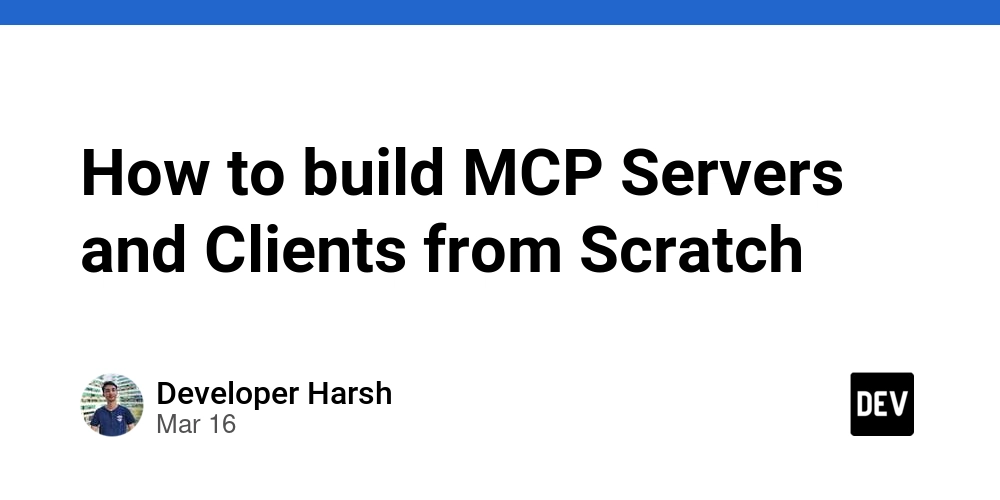Dev
1M
300

Image Credit: Dev
How to build MCP Servers and Clients from Scratch
- Model Context Protocol (MCP) provides a standard, secure, real-time, and two-way communicating interface for AI systems to connect with external tools, API services, and data sources.
- MCP allows for single, standardized integration effort, real-time communication, dynamic discovery, easy scalability, and consistent security across tools, unlike traditional APIs.
- MCP architecture includes components like MCP Hosts, Clients, Servers, Local Data Sources, and Remote Services, which work together for seamless integration.
- Building an MCP Server involves using Python SDK or JavaScript SDK. The server code includes defining tools for operations and resources for personalized interactions.
- Testing the MCP Server locally can be done using the MCP Inspector tool to ensure smooth functionality and integration with AI agents.
- Connecting custom servers to tools like Cursor involves setting up the server details, integrating with Cursor settings, and testing functionality within the environment.
- Composio simplifies integration with a single line of code, offering fully managed MCP Servers for rapid development of AI applications without complex integration concerns.
- Composio's MCP integration involves selecting tools, generating a URL, adding the server in Cursor settings, and testing functionalities through the Composer interface.
- MCP's role in enhancing AI capabilities by enabling seamless interaction with external tools and data sources is crucial for creating integrated AI experiences in software development.
- MCP and solutions like Composio are at the forefront of transforming AI development by fostering ecosystems where AI can effectively engage with everyday tools, leading to more intelligent applications.
Read Full Article
18 Likes
For uninterrupted reading, download the app